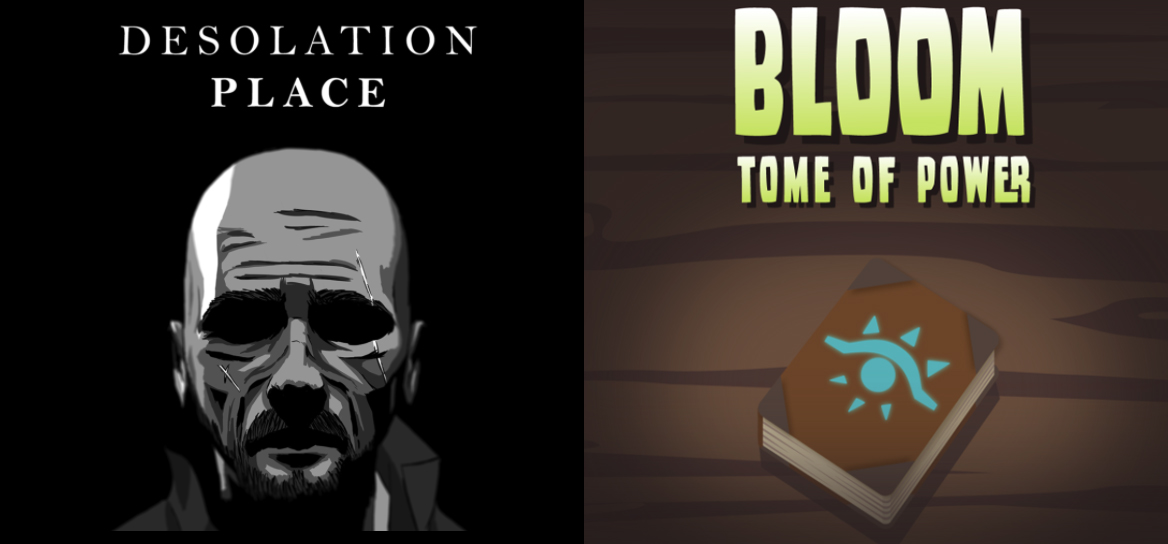Undergraduate student teams create two new video games over the summer
The games were conceived and developed by teams of students working remotely during the summer of Covid.

 Enlarge
Enlarge
Videogame development is a hot topic at Michigan, and this summer two teams of U-M undergrads, working remotely because of the Covid-19 outbreak, have shown us why.
Advised by CSE lecturer Austin Yarger and led by students Amber Renton and Nico Williams, the two teams conceived of, designed, and developed two videogames between June 1st and August 16th. Both games are ready to play and have been released by WolverineSoft Studio, the U-M student development studio advised by Yarger.
Desolation Place is a 3D first-person stealth horror game where the player character must traverse through an abandoned castle, avoiding both the horrors that lurk within its shadows as well as the terrors that lurk within his past. Renton led this development.
Bloom: Tome of Power is a first person shooter inspired by genre defining games such as DOOM, Hexen, and Dusk. The mystic forest is blooming and ancient evils have returned. Only the Tome of Power hidden in the ancient Archives contain the answers for how to defeat these forces. Players must use their skills of magic and maneuverability to quell the overgrowth and free the forest and lost village of these creatures. Williams led this development.
Wolverine Soft Studio, a new College of Engineering Multidisciplinary Design Project administered by Yarger, allows students to earn academic credit for investing and documenting time with the team and its game projects, but while credit may be earned in the Fall and Winter semesters, Summer projects advance on a purely voluntary basis, making the team’s achievement all the more impressive.
“For the past three months, 56 WolverineSoft Studio students and alumni from the U-M Stamps School of Art & Design, The School of Music, Theatre & Dance, the College of LSA, the College of Engineering, and other local Michigan schools have collaborated as smaller development teams for the two separate game projects,” said Renton. “Within these dev teams, members met frequently with others across different disciplines: artists worked closely with programmers to ensure a unique visual tone; programmers worked closely with designers to ensure the vision for each project was met; designers worked closely with musicians to ensure the quality and cohesion of sound; and so on.
She continues, “In spite of the unique challenges brought on by the year, the sacrifices made and immense effort put forward by volunteer student leadership and members of the student development team have made a significant ripple in the local games community. There is no telling what we may accomplish as the studio continues to grow in the future!”
Yarger, who teaches EECS 494, Computer Game Design and Development, was pleased by the students’ work and wants their success to be recognized. “Wolverine Soft Studio’s multidisciplinary team just completed a summer for the history books,” he said. “Amid significant disruption and challenges, they managed to pull together and invest themselves thoroughly in these projects, completing two of the studio’s most impressive, impactful games in record time. It’s a tremendous credit to the studio’s student leadership and its diverse coalition of ever-improving student developers. These are the efforts that open doors.”
Students interested in becoming involved in videogame development should also investigate WolverineSoft, the U-M on-campus student videogame development student group. Renton is the group’s president and Yarger is its faculty advisor. According to Yarger, “WolverineSoft is a great way to build your network and develop your skills.”
 MENU
MENU